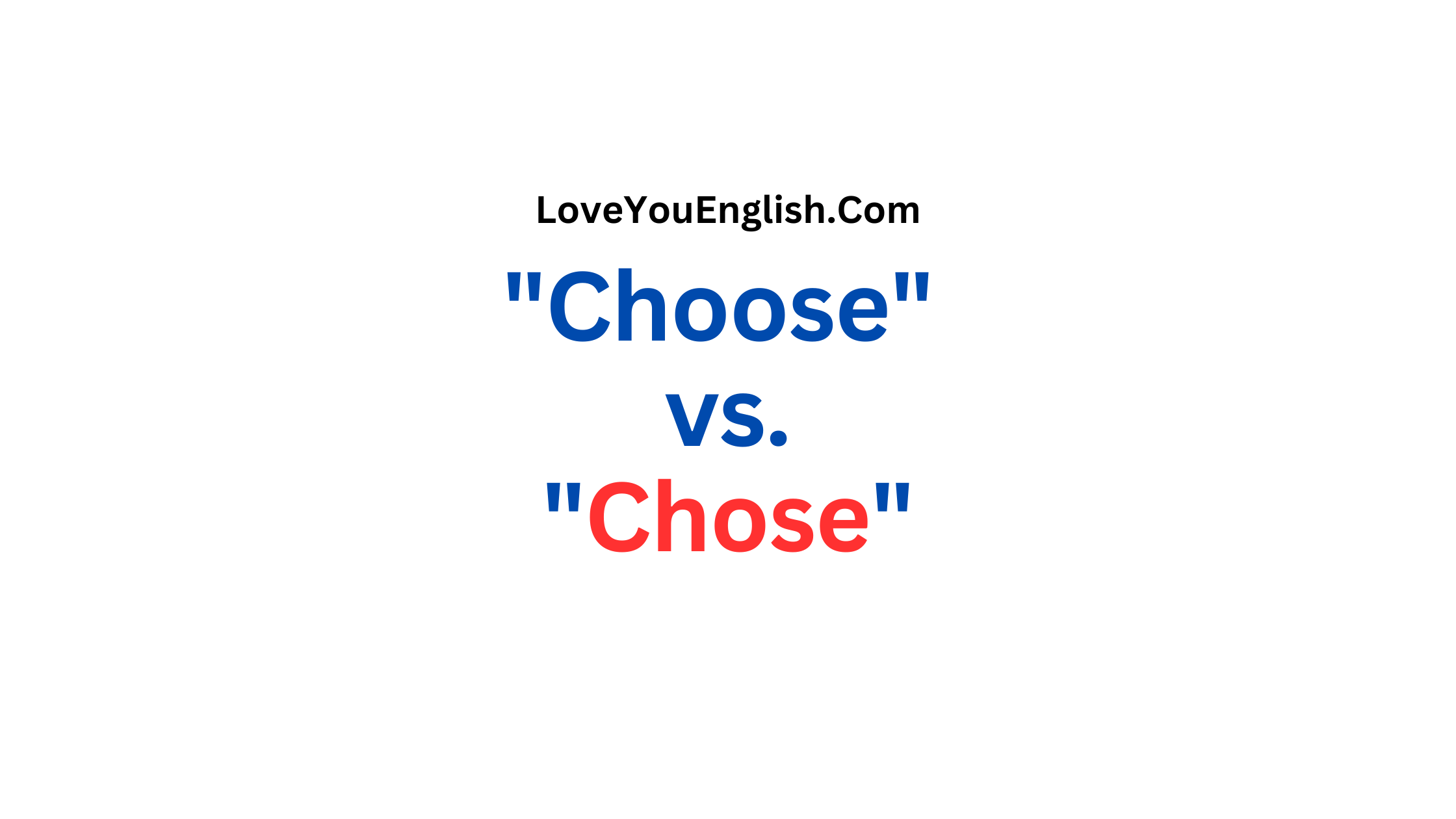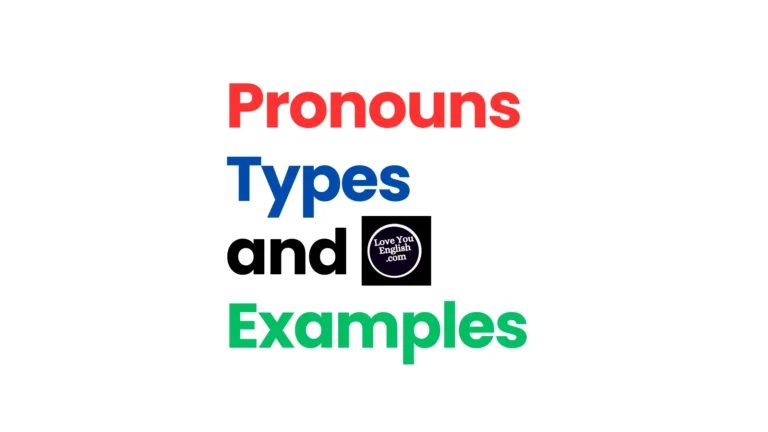When to Use “Choose” vs. “Chose”: A Comprehensive Guide
Have you ever found yourself staring at a sentence, wondering whether “choose” or “chose” is the right word to plop in there?
If so, you’re not alone. These two little words have tripped up writers, students, and even seasoned grammar buffs for years.
They sound similar, they’re spelled almost the same, and they both relate to making decisions—but they’re not interchangeable.
So, what’s the deal? By the end of this guide, you’ll not only know the difference between “choose” and “chose” like the back of your hand, but you’ll also feel confident tossing them into your sentences without a second thought.
Let’s dive in!
The Basics: What Do “Choose” and “Chose” Mean?
Before we get into the nitty-gritty, let’s start with the foundation. Both “choose” and “chose” come from the same verb: to select or pick something from a set of options. Think of it like standing in front of an ice cream counter, eyeing the chocolate, vanilla, and that wild pistachio flavor you’re tempted to try. Whether it’s ice cream or life decisions, “choose” and “chose” are all about making a choice. The difference? It’s all about time.
- Choose is the present tense. It’s what you use when the action is happening now or happens regularly. For example, “I choose vanilla every time because it’s a classic.”
- Chose is the past tense. It’s for when the decision already happened. Like, “Yesterday, I chose pistachio and instantly regretted it.”
Simple, right? Well, mostly. English loves to throw curveballs, so let’s break this down further with examples, tricky spots, and even a few fun ways to remember the rules.
“Choose” in Action: Present Tense Vibes
Picture this: You’re at a restaurant with your friends, and the waiter hands you a menu thicker than a novel. You’re scanning the options—pizza, pasta, that fancy salad no one ever orders—and you say, “I choose the pepperoni pizza.” That’s “choose” in its natural habitat: the present tense. It’s happening right now, in the moment.
But “choose” isn’t just for one-off decisions. It also works for habits or ongoing preferences. Say your friend always picks the same thing and you tease, “Why do you always choose the salad?” Here, “choose” reflects a recurring action. It’s versatile like that.
Want more examples? Here you go:
- “I choose to binge-watch sci-fi shows on weekends.” (Right now or generally true.)
- “They choose their team based on vibes, not stats.” (A current or habitual action.)
The key with “choose” is that it’s tied to the present—whether it’s this second or a pattern you stick to over time. Plus, it rhymes with “ooze,” which is just fun to say. Try it: “I choose the booze.” See? Instant party trick.
“Chose” Takes the Stage: Past Tense Perfection
Now, let’s hop in a time machine and go back a bit. Yesterday, last week, or even five minutes ago—whenever the decision’s done and dusted, “chose” is your word. It’s pronounced like “shows” (not “chaos,” though that’s a common slip-up), and it’s the past tense of “choose.”
Back to that restaurant scene: After you ordered, you might tell your friend, “I chose the pizza because I was starving.” Done Deal. Decision made. Or maybe you’re reflecting on a bigger moment: “She chose to move to New York last year, and it changed everything.” Past tense, past action—chose is the star.
Here are a few more to chew on:
- “He chose the red tie for the interview.” (It’s over, tie’s picked.)
- “We chose to skip the movie and grab dinner instead.” (Decision’s in the rearview mirror.)
“Chose” locks the action in the past, no ifs, ands, or buts. It’s like a timestamp on your choices.
The Tricky Part: Irregular Verb Shenanigans
Here’s where things get a tiny bit spicy. “Choose” and “chose” aren’t like regular verbs that just tack on an “-ed” to show the past—like “walk” becoming “walked.” Nope, “choose” is an irregular verb, which means it does its own thing. The present is “choose,” the past is “chose,” and if you’re wondering about the past participle (for stuff like “I have chosen”), it’s “chosen.” We’ll touch on that later, but for now, just know that “choose” doesn’t play by the usual rules. That’s why it’s not “choosed”—a mistake I’ve seen more than once in student essays (and, okay, maybe in my own drafts too).
This irregularity is what trips people up. If you’re not paying attention, you might write “I choose the wrong answer yesterday” when it should be “I chose the wrong answer yesterday.” Time matters, and these two words are sticklers for it.
Real-Life Mix-Ups (And How to Avoid Them)
Let’s be real—mixing up “choose” and “chose” happens to the best of us. You’re typing fast, your brain’s on autopilot, and suddenly you’ve got “She choose to stay home last night” instead of “She chose to stay home last night.” Oops. So, how do you catch these slip-ups?
- Check the Timeline: Ask yourself, “When did this happen?” If it’s now or a habit, go with “choose.” If it’s already done, “chose” is your pick.
- Read It Aloud: “Choose” (chooz) and “chose” (choze) sound different. Say it out loud—your ear might catch what your eyes miss.
- Swap Test: Replace it with another verb. “I walk yesterday” sounds wrong, so “I choose yesterday” is too. Adjust to “I chose,” and you’re golden.
Here’s a quick example to test yourself: “I ___ to wear flip-flops today, but I ___ boots yesterday.” Fill it in—did you get “choose” and “chose”? If so, high five!
Beyond the Basics: Future and Perfect Tenses
Okay, we’ve nailed present and past, but what about the future or those fancy perfect tenses? Don’t worry, it’s not as complicated as it sounds.
- Future: Use “choose” with a helper like “will.” “I will choose the dessert later.” Easy peasy.
- Present Perfect: This is where “chosen” sneaks in. “I have chosen the best playlist for the road trip.” It’s past action with a present vibe.
- Past Perfect: “Had chosen” for something way back. “By the time we arrived, she had chosen the movie.”
For this guide, though, “choose” vs. “chose” is the main event—those other forms are just bonus trivia for your next grammar nerd party.
Fun Ways to Remember the Difference
Still worried you’ll blank on which one’s which? Try these memory tricks:
- Choose = Present, Two O’s: “Choose” has two “o’s” like two options you’re picking from right now.
- Chose = Past, One O: “Chose” has one “o” because the choice is done—only one option left standing.
- Story Time: Imagine a picky prince. Today, he says, “I choose my bride!” Yesterday, “I chose my castle.” Present prince chooses, past prince chose.
Or, if you’re a visual learner, picture a comic strip: Frame 1, a kid says, “I choose candy!” (present). Frame 2, “I chose candy and got a sugar rush” (past). Stick that in your brain, and you’re set.
Wrapping It Up
So, there you have it—a full-on guide to mastering “choose” vs. “chose.”
Whether you’re choosing your next Netflix binge right now or reminiscing about the show you chose last night, you’re armed with the know-how to nail it every time.
It’s all about timing: “choose” for the present, “chose” for the past. Sprinkle in a little practice, maybe a goofy mnemonic, and you’ll be tossing these words around like a pro.
Next time you’re stuck, just pause, think about when the action happened, and let the right word flow.
You’ll be amazed how natural it feels. Now, go forth and choose (or chose) your words wisely—I know you’ve got this in the bag!
Explore more topics:
- Everyday English Expressions for Daily Use
- Online Education: The Modern Way to Learn
- Talking Tech: A Guide to Discussing Technology in English
- Online Resources for English Learners







